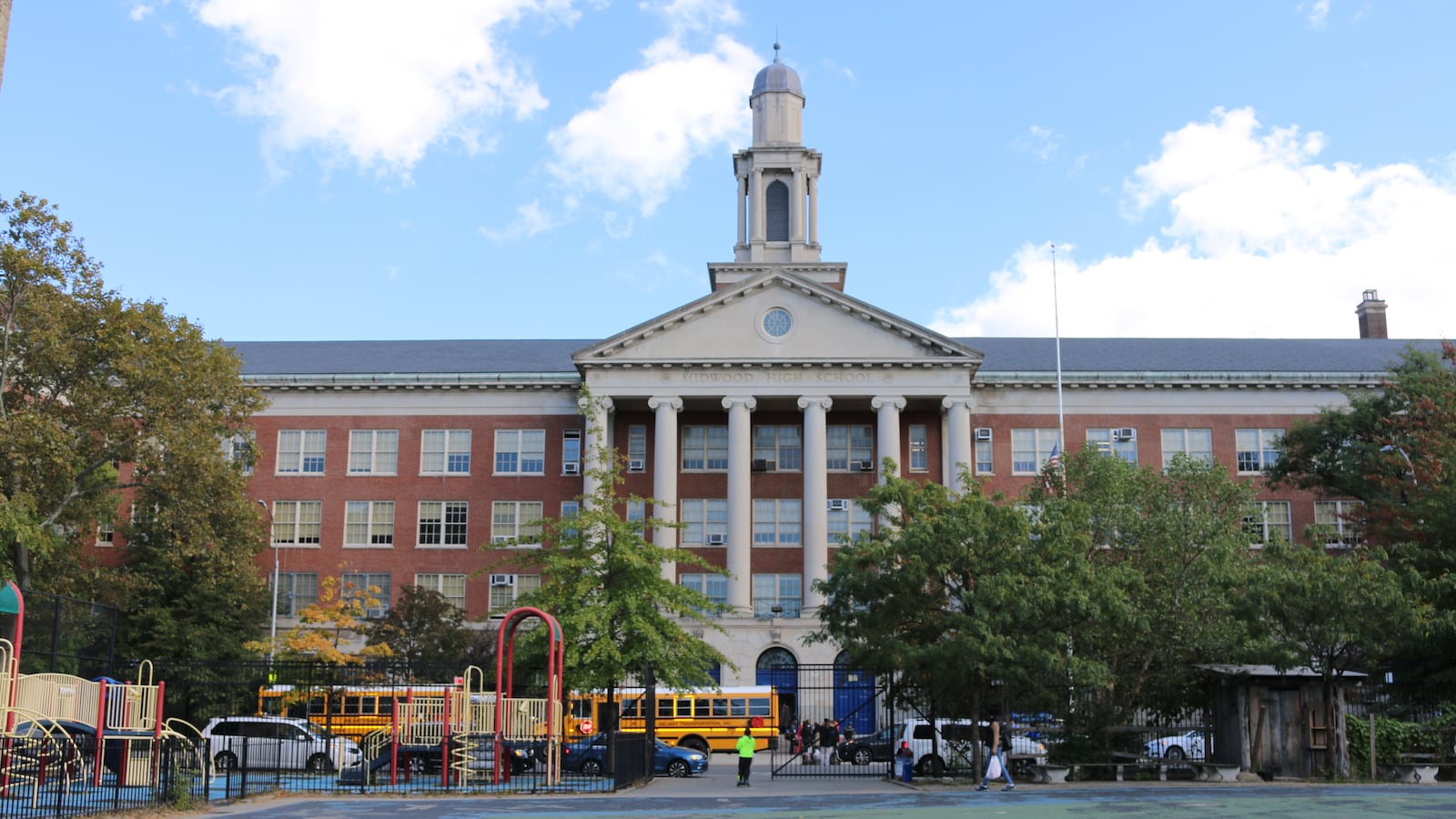New York City has ordered schools to stop spending money that isn’t related to the coronavirus pandemic, a move that has created confusion among some school leaders and pushback from union officials.
“As per the Chancellor’s guidance, all non-mandated and non-COVID-19-related purchases are suspended effective immediately,” according to a memo that was sent to school administrators this week and obtained by Chalkbeat.
The move comes as remote learning will likely continue for the duration of the school year, which means that spending needs have shifted. Meanwhile, the department is facing a wave of budget cuts, and some believe the budget restrictions are a cost saving measure.
Few school leaders were surprised by the mandate to spend only on coronavirus-related needs, but union officials and some principals said it’s unclear what counts as coronavirus-related spending and were concerned about the lack of flexibility over school budgets. Parent associations have also received mixed messages about how they may supplement school spending during the shutdown.
“The biggest concern I have is the lack of communication and transparency from the city,” said Mark Cannizzaro, president of the Council of School Supervisors and Administrators, the union that represents principals. “Be transparent and honest about what’s happening and not happening — let [principals] run their schools.”
Schools may still spend money on a host of goods and services even as buildings are shut down, department officials said, including training to provide remote instruction, online materials, or even ordering art supplies to send to students’ homes.
They may also give teachers additional pay to tutor students, offer “Saturday academies” at struggling schools, or manage “mandated” services, such as those for students with disabilities or those learning English. Schools may also continue paying vendors to help students complete college applications or financial aid forms, according to guidance sent to principals.
But other spending that isn’t directly tied to the coronavirus or transition to remote learning is not allowed. That includes teacher training that isn’t related to virtual instruction. Other purchases, such as musical instruments and office supplies, are not allowed either.
“During this unprecedented crisis, the full focus of our schools should be on the success of remote learning and the well-being of our students and staff, and we’ve issued purchasing guidelines to reflect that focus,” department spokesperson Miranda Barbot wrote in an email. The directive also applies to the department’s central administration.
Although many schools have already spent much of their budgets, some principals said the new rules have led to confusion about what new kinds of spending will be approved.
A Brooklyn high school principal, who spoke on condition of anonymity, said the guidance has made it unclear whether the school can continue paying teachers overtime to offer additional coursework to students who are behind in credits.
It has also made the principal nervous about whether there will be enough money in the school’s budget to restock on basic supplies when students return. “We’re worried about running out of paper next year,” the principal said, adding the budgets are generally “use it or lose it.”
Some money that schools are not able to spend is returned to the education department, although it depends on the funding source, a department spokesperson said. Some school leaders acknowledged funds funneled back to the department could potentially be an effort to save as much money as possible as system wide cuts loom.
Mayor Bill de Blasio has proposed cutting the education department’s spending by over $221 million, including a reduction in next year’s school budgets and broader cuts to teacher training.
Department officials did not say how much money is currently left in school budgets, or whether the budget changes were an effort to save money.
Michael Mulgrew, president of the city’s teachers union, raised concerns about the spending restrictions, particularly around teacher training.
“I don’t think cuts should be made without talking to the stakeholders,” he said in a statement.
“Of course we don’t want to keep underused or repetitive professional development. But who is making that decision? Right now [the Office of Management and Budget] is making the decision — and they don’t have to deal with the impact,” Mulgrew continued. “Our mission is to protect funding that goes directly into classrooms and schools.”
Parent association leaders have also said they have received confusing messages about school spending. Some parent associations raise money to supplement school spending on supplies and other services.
One Brooklyn parent association leader was told in a March email that parent spending was under legal review.
“Until we receive a response from legal, we ask that all PA/PTAs pause on all financial matters at this time,” wrote an official from the education department’s Division of Community Empowerment, Partnerships, and Communications.
The education department, however, was not directing PTAs to stop spending money, said Barbot, the spokesperson, adding that the department does not have “oversight or jurisdiction” over parent association bank accounts.

